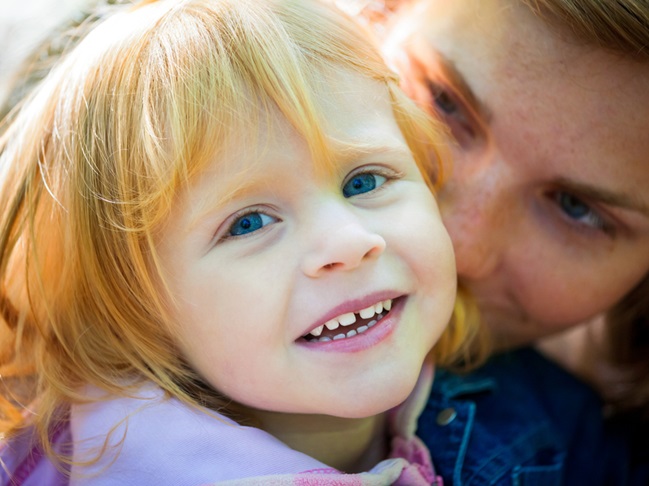What Is Positive Parenting?
Positive parenting means using positive methods of discipline, rather than negative ones. It helps to boost your toddler’s self esteem, because you’re teaching him good behavior by reinforcing positive things, rather than the focus being on punishing him for negative things.
How Can I Start Positive Parenting?
The best way to start is by making a conscious effort to minimize your use of the word “no.” This will help you to formulate alternatives before speaking to your toddler. For example, “No, don’t grab the cat’s tail!” should become, “Remember: use gentle hands,” or “Stroke the cat softly.” These more positive phrases should have a similar effect in modifying your toddler’s behavoir without creating conflict.
Hearing too many “no”s can often cause frustration in toddlers, leading to tantrums. Also, negative speech often doesn’t give the toddler enough direction, so she is left knowing what she shouldn’t do but not what she should do. In the case of the first example “No, don’t grab the cat’s tail!” the toddler wouldn’t know how she should treat the cat, she would only know that that what she was doing was wrong, so it’s always best to offer a positive alternative to an undesirable behavior.
When Should I Use Positive Parenting?
You’ll be surprised how often you will find yourself using these techniques, once you start. Here are a few more examples:
- Make instructions fun. Children often find being ordered around frustrating, and this can result in negative behavior from them. Instead of saying, “Put your coat on,” make it into a game with, “I bet you can’t put your coat on before me”. Making things fun is often a much more positive way to gain the same result.
- Encouraging good behavior with your praise and attention makes a toddler much more likely to want to repeat the behavior in the future.
- Limit the use of bribes. While tempting, the overuse of bribes can lead children to expect a payoff for every good behavior, making them more focused on the promise of a bribe than the behavior itself.
- Rewards for good behavior don’t have to be sweets or toys, a simple hug and your attention shows a child you’re pleased with him.
- Be a role model. Even small children can understand what you say, so try demonstrating the fact that it feels good to achieve a task by your actions and words. For example, “I feel very happy now I’ve tidied the kitchen.” Your child will start to understand that completing a task is a reward in itself.
- If you do say no, follow it with an explanation. It’s impossible to never use the word “no”, and, if your child does something potentially dangerous, you may just utter it out of instinct. Of course that’s okay, but, once you have eliminated the danger, try to explain to your child why you said no, so follow it up with “Mommy’s cup is hot,” or “The dog’s toy is dirty,” in a calm but firm voice so your child knows you’re serious.
- Look for the cause of problem behavior. Sometimes children act up simply because they want your attention. Perhaps there has been a change at home or in their routine and they need more attention from you, so spending some one-on-one, quality time together and acknowledging and praising any resulting good behavior can often stop bad behavior in its tracks.








